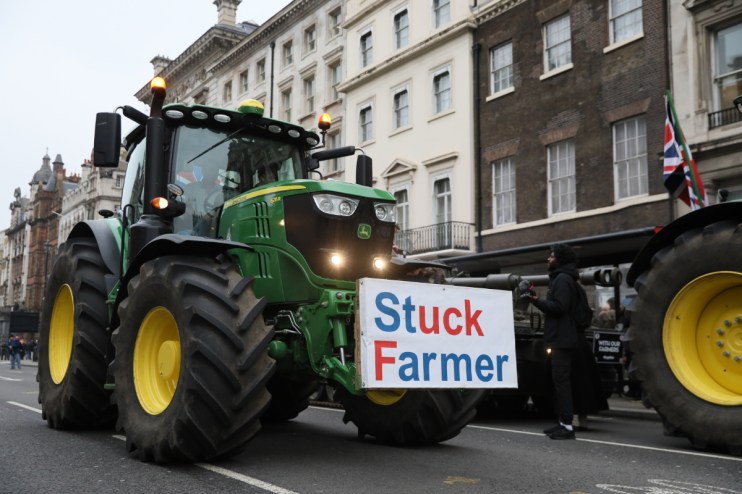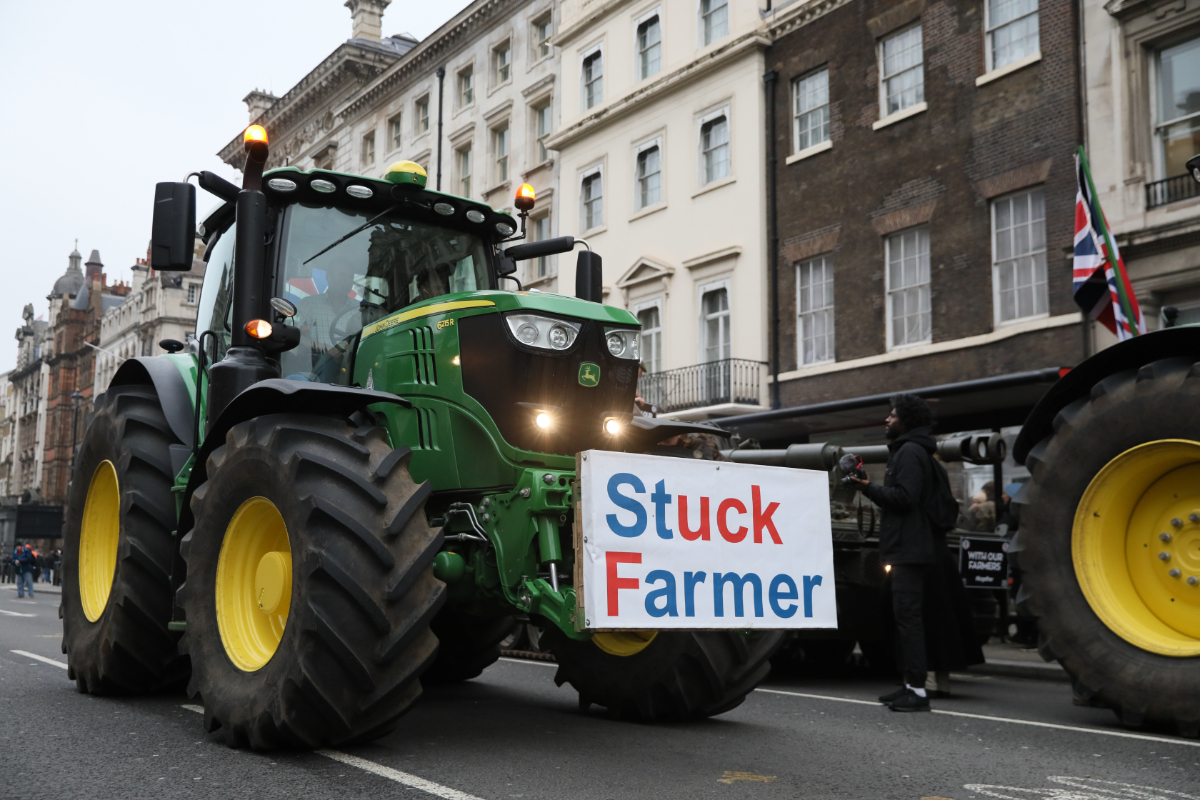Thursday 14 August 2025 1:54 pm
| Updated:
Thursday 14 August 2025 1:56 pm
Share
Facebook Share on Facebook
X Share on Twitter
LinkedIn Share on LinkedIn
WhatsApp Share on WhatsApp
Email Share on Email
 A tractor, carrying the message “Stuck Farmer”, drives in Westminster during a Farmers Protest over inheritance tax relief being slashed on February 10, 2025 in London, England. Demonstrators gather in central London to protest against changes to inheritance tax rules for land ownership for farmers. (Photo by Alishia Abodunde/Getty Images)
A tractor, carrying the message “Stuck Farmer”, drives in Westminster during a Farmers Protest over inheritance tax relief being slashed on February 10, 2025 in London, England. Demonstrators gather in central London to protest against changes to inheritance tax rules for land ownership for farmers. (Photo by Alishia Abodunde/Getty Images)
Most farmers will be able to shoulder the inheritance tax bill foisted on them by the Treasury at last autumn’s Budget without having to sell their family farm, according to a fresh analysis which also proposed new ways the reforms could be “better targeted.”
The paper, from independent tax think tank the Centre for the Analysis of Taxation (Centax), found that as many as 80 per cent of the agricultural estates affected by the change will be able to pay their inheritance tax with other assets they own.
In what is the first in-depth, independent study of the overhaul, which sought to end the decades-long inheritance tax relief enjoyed by large farms and family businesses, the research assuaged fears that most smallholdings and family farms would struggle to pay their bill without selling up.
As part of her maiden Budget, Chancellor Rachel Reeves chose to tighten inheritance tax carve-outs granted to farms and family businesses that dated back to Margaret Thatcher’s tenure as Prime Minister, claiming they were being abused by super-rich asset owners.
Under the new system, farms worth more than £1m would be liable to a 20 per cent inheritance tax bill on everything above the £1m threshold.
The policy is more generous than standard inheritance tax, which is levied at 40 per cent after a threshold of £325,000. But it sparked uproar among farmers and the rural community generally, who feared landowners would need to sell their farms to pay the bill, or that they would plunge already struggling farming businesses into further financial distress.
Inheritance tax changes could be ‘better targeted’
And the Centax study – based on HMRC data – estimated that while the majority of farms will be able to pay their IHT bill using other assets, 70 of the 1,560 farms now liable to inheritance tax annually will not. As many as 40 of these would face a bill greater than 20 per cent of their farm’s overall income.
Read more
Record number of farms shut after inheritance tax grab
“Our analysis shows that the government’s reform largely protects family farms whilst limiting claims by the wealthiest estates,” said Andy Summers, director at Centax and associate professor at the London School of Economics. “But the relief could be better targeted to reduce its use for tax planning and further extend protection for businesses, including farms.”
Summers proposed a rejigging of the rules to raise the relief threshold to £5m, to minimise the impact on working farmers with the least valuable farms caught in the changes. This would be funded by ending the threshold entirely on so-called ‘passive investors’ in farmland who do not farm themselves but own the land.
The National Farmers Union welcomed the paper’s proposals, despite having called for a U-turn in the aftermath of the overhaul being announced.
Tom Bradshaw, the body’s president, said: “Centax… recognises that working farms will be disproportionately affected by this tax.
“This is not a fair and balanced approach to reform and does little to counter those who seek to shelter wealth from inheritance tax by simply investing in farmland.
“There are interesting adjustments within the report that appear to mitigate the impacts on the most vulnerable in our community and enable farms to invest in the future of food production with greater confidence.”
Read more
Inheritance tax nets record £6.7bn before Budget raid
Similarly tagged content:
Sections
Categories
People & Organisations

